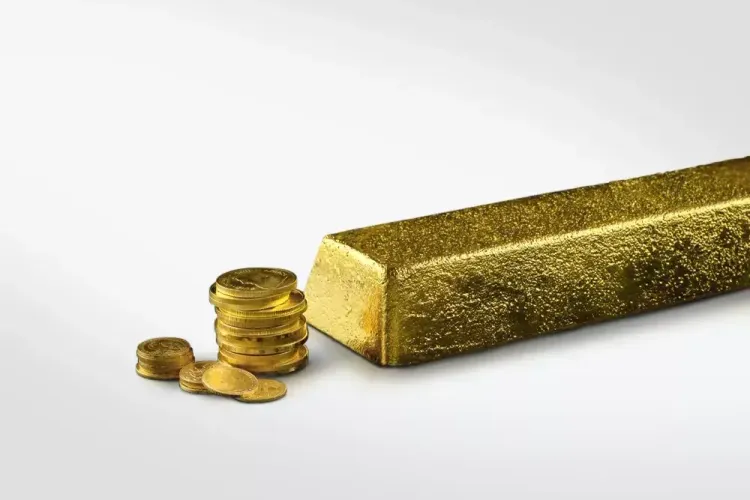Bank Customers Flock to Purchase Gold Amid Concerns Over Rates and Trump Policies

Synopsis
Key Takeaways
- Bank customers are buying gold amid rate cut concerns.
- Gold sales have surged to 24.2 billion won this month.
- Gold prices hit the highest level since 2014.
- Investors are reacting to Trump's tariff policies.
- KOSPI index shows moderate gains on favorable tech stocks.
Seoul, Feb 12 (NationPress) Bank customers are hastily purchasing gold due to disappointed expectations for early rate reductions by the Federal Reserve (Fed) and troubles stemming from the policies of US President Donald Trump's administration, as shown by recent industry data.
The data indicates that the nation's leading five banks -- KB Kookmin, Shinhan, Hana, Woori, and NH Nonghyup -- have collectively sold 24.2 billion won ($16.7 million) worth of gold bars this month, a significant increase from 7.96 billion won a year earlier.
This figure also indicates a notable rise from 12.4 billion won during the same month last year, according to Yonhap news agency.
The bleak prospects for the Fed’s early rate cuts, alongside growing uncertainties due to the Trump administration's elevated tariffs, are driving bank customers to pursue safe-haven assets like gold.
As of Tuesday, the cost of 1 gram of gold reached 156,230 won, the highest since March 2014, when the nation’s gold exchange was established, and nearly double the 86,000 won recorded on February 13 last year.
The daily trading volume of gold in South Korea totaled 102 billion won on Tuesday, surpassing the 100 billion-won mark for the first time.
Meanwhile, South Korean stocks closed higher on Wednesday, primarily driven by advances in tech stocks and shipbuilders, as investors processed US President Trump's latest tariff strategy. The local currency depreciated against the US dollar.
The benchmark Korea Composite Stock Price Index (KOSPI) increased by 9.34 points, or 0.37 percent, to finish at 2,548.39, continuing a winning streak for a second session.
Trade volumes were moderate, with 453.32 million shares valued at 13.19 trillion won ($9.08 billion), while the number of losers surpassed winners, with a ratio of 551 to 332.
Attention is also focused on the US inflation data for January, which was set to be released on Wednesday (US time).










